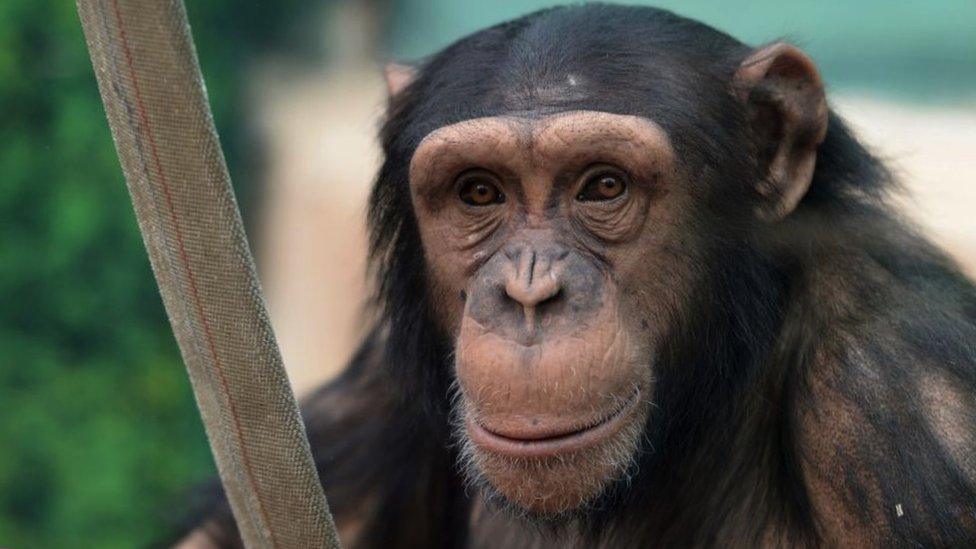Chimpanzees use insects to treat their own wounds and other apes' too
- Published
- comments

Chimpanzees have been seen to treat their cuts with insects (library picture)
How would you treat a cut?
Most people might use an antibacterial wipe and a big plaster. But how about using insects?!
Well it seems to work for chimpanzees, who have been spotted catching insects and applying them directly to the open wounds.
Scientists recorded this behaviour in chimps in Gabon, Africa, noticing that they not only use insects to treat their own cuts, but also help look after other injured chimpanzees too.
Experts say other animals don't care for each other in this way.
Baby chimps messing around like these two can get injured
The project began in 2019, when an adult female chimpanzee named Suzee was observed looking at a cut on the foot of her young son.
Suzee then suddenly caught an insect out of the air, put it in her mouth, squeezed it, and then put it on her son's wound.
It all took place at Gabon's Loango National Park, where researchers are studying a group of 45 central chimpanzees - an endangered species.
A type of animal or plant that might stop existing because there are only a few of that type still alive.
Chimpanzees were also spotted caring for and treating the wounds of other apes too (library picture)
Over the following 15 months, scientists saw chimpanzees use the same treatment on themselves at least 19 times.
They also saw injured chimpanzees being treated in the same way by one or several fellow apes.
The wounds, sometimes several centimetres wide, can come from fights between members of the same or a rival group of chimps.
Far from saying no to the treatment, the bruised chimpanzees were happy to be looked after.
It takes lot of trust to put an insect in an open wound. They seem to understand that if you do this to me with this insect, then my wound gets better. It's amazing.
Researchers have not been able to identify what bug was used on the wounds, but they believe it to be a flying insect given the chimpanzees' fast movement to catch it.
Birds, bears, elephants and other animals have already been seen self-medicating to heal wounds or illnesses, for example by eating plants.
But what is interesting about chimpanzees is that they will treat not just themselves, but also help others.
The research is published in the journal Current Biology.
- Published10 February 2022
- Published4 February 2022
- Published16 August 2021
